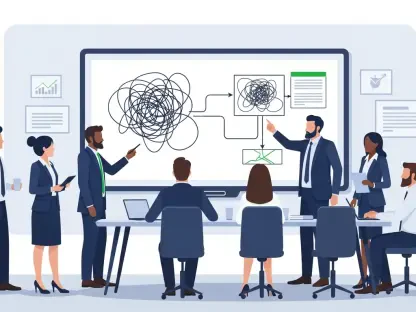The Indianapolis Public Schools (IPS) community finds itself at a crossroads as Indiana lawmakers propose restructuring school funding. These changes have sparked significant anxiety among parents, administrators, and students, who voice concerns about potential detrimental effects on educational stability and quality. This article delves into the legislative push, community concerns and reactions, impact on IPS operations, wider community response, and the ongoing legislative journey.
The Legislative Push
Key Bills Restructuring Funding
Indiana is experiencing a wave of legislative proposals that aim to reshape school funding. Senate Bill 518, spearheaded by Senator Linda Rogers, seeks to redistribute property tax revenue between traditional school districts and charter schools. This bill proposes a phased approach, with full implementation by 2028, potentially causing a financial setback for districts like IPS. As property taxes constitute a significant portion of school funding, this redistribution could result in substantial budget reductions for IPS, affecting its ability to maintain current programs and services.
Another significant proposal is House Bill 1136, which aims to dissolve certain school districts where more than 50% of students attend schools outside their assigned boundaries and convert them to charter schools. Although HB 1136 did not advance this session, its introduction has raised considerable unease among IPS parents, administrators, and community leaders. The notion of converting public schools to charter schools on such a large scale has led to fears of reduced local control and the erosion of public accountability in education. The bill’s failure to proceed provides temporary relief, but the mere introduction of such drastic measures has heightened the sense of instability and uncertainty within the IPS community.
Property Tax Relief Measures
Adding another layer of complexity to the legislative landscape is Senate Bill 1, which aims to provide property tax relief for homeowners by updating tax caps and introducing a deferral program. While the bill’s primary intention is to ease the financial burden on homeowners, it carries potential unintended consequences for local government budgets, including those allocated to school districts. The property tax relief measures could result in reduced revenue for schools, leading to further financial strain on districts already grappling with resource limitations. School administrators and local government officials have expressed concerns that the relief measures, while beneficial to homeowners, may inadvertently hinder the ability of schools to provide essential services and maintain operational stability.
These legislative proposals collectively illustrate a substantial shift in Indiana’s approach to school funding. By redistributing property tax revenue and proposing major organizational changes, lawmakers aim to overhaul the current system, prioritizing charter schools and homeowner relief but potentially compromising the financial health and functional stability of traditional school districts like IPS.
Community Concerns and Reactions
Parental Anxiety
Parents are at the forefront of the opposition to these legislative changes, expressing deep fears about the stability and continuity of their children’s education. Amy Noel, an IPS parent whose son has ADHD, is particularly concerned about the potential closure of his school and the adverse impact of such transitions on his specialized education needs. The uncertainty surrounding these legislative proposals is causing widespread angst among families who rely on consistent educational environments and specialized programs to cater to their children’s diverse learning requirements.
Windi Hornsby, another parent, has articulated her concerns about the risks to specialized programs such as her kids’ dual language immersion program. These programs, which offer unique educational opportunities, could be jeopardized by funding cuts and school closures. Hornsby’s sentiment echoes the collective anxiety among parents who worry that the legislative proposals will undermine the quality and variety of education available to their children.
Advocacy Efforts
In response to the proposed changes, parents have mobilized in advocacy efforts, attending meetings, testifying before legislative committees, and engaging with lawmakers. They are determined to preserve the stability and quality of IPS, ensuring that their children’s educational needs are met without disruption. These advocacy efforts highlight the critical role parents play in shaping educational policies and safeguarding their children’s future. Through organized campaigns and vocal participation in legislative processes, parents aim to influence policymakers and bring attention to the tangible implications of funding restructures on student welfare.
Parents like Megan Alderman have criticized the perceived extremity of the legislative proposals, describing them as fear-mongering and inappropriate. Their concerns underscore the broader apprehension within the community, emphasizing the need for balanced and thoughtful legislative approaches that consider the long-term impacts on public education. By advocating for more stable and predictable support for public schools, parents hope to mitigate the threats posed by these legislative changes and ensure a robust educational framework that caters to all students.
Impact on IPS Operations
The Rebuilding Stronger Initiative
IPS recently launched the “Rebuilding Stronger” initiative, a comprehensive plan aimed at expanding access to arts, athletics, and academic programs across the district. This initiative included the closure of certain schools and strategic redistribution of resources to enhance educational opportunities. However, the proposed legislative changes cast a shadow over these efforts, threatening to undermine the progress made under the initiative. The uncertainty surrounding funding and potential school closures jeopardizes the stability and continuity of these improvements, challenging the district’s capacity to maintain and further develop the enhanced programs.
The initiative’s goal was to provide a balanced and enriched educational experience to all students within the IPS district. By focusing on arts, athletics, and academics, IPS aimed to create a well-rounded curriculum that caters to diverse student interests and fosters holistic development. The legislative proposals, however, risk disrupting this careful balance by diverting crucial resources away from traditional public schools, potentially limiting access to these enhanced programs and diminishing the overall educational quality.
Potential Cuts and Resource Redistribution
IPS administrators, including Superintendent Aleesia Johnson, have voiced strong opposition to the legislative moves, warning that the redistribution of already limited resources may lead to significant cuts in essential services. One of the critical concerns is the potential elimination of bus routes, which could impact thousands of students by limiting their ability to commute to school. Such cuts would challenge the district’s operational stability, adding logistical hurdles and reducing accessibility to education for many students.
Superintendent Johnson highlighted the strain that continuous splintering of resources would place on the district. With no limitations on the number of new charter schools that can be opened within IPS boundaries, the financial resources would be increasingly fragmented. This fragmentation would result in every school receiving something but no school receiving enough to sustain quality programs and services effectively. The proposed legislative changes, therefore, pose a direct threat to the operational stability and sustainability of IPS, amplifying challenges that the district already faces.
Parents like Kristen Phair, whose children attend George Washington Carver School 87, worry that redirecting funding away from IPS would limit their educational choices. Phair argues that reducing the financial capability of IPS undermines the public accountability and governance of education, which is essential for maintaining high-quality standards and ensuring that educational institutions meet the needs of the community. The broader concern among parents and administrators is that the legislative proposals, while potentially supporting charter school growth, would erode the foundation of traditional public schools, compromising educational stability and quality for all students.
The Wider Community Response
Mobilization of Community Leaders
The legislative proposals have also mobilized a coalition of Black business owners and community leaders who are demanding greater transparency in discussions between IPS and charter-friendly organizations. These leaders are concerned that the increase in charter schools could result in a loss of accountability and oversight in public education. The coalition argues that public schools offer a level of local control and community engagement that charter schools may not necessarily provide. As charter schools proliferate, the accountability mechanisms that ensure educational standards and address community needs may weaken, posing risks to the quality of education.
Community leaders emphasize the importance of maintaining robust public education systems that are transparent and accountable to the local communities they serve. Their advocacy for more transparent discussions reflects a broader desire to safeguard the integrity and accessibility of public education, ensuring that all students have equitable opportunities to succeed. The coalition’s efforts underscore the critical role of community engagement in educational policy-making and the necessity of involving diverse stakeholders in decision-making processes.
Voices of Lawmakers and Charter Advocates
On the other side, proponents of the legislative changes, such as Senator Linda Rogers, argue that charter schools deserve a fair share of property tax revenue to meet their operational needs. Rogers and other advocates emphasize parental choice in education, suggesting that spreading resources to charter schools would enhance educational opportunities for children. They argue that charter schools provide alternative educational environments that cater to varying student needs and preferences, offering parents more options for their children’s education.
Senator Rogers has been particularly vocal about the need for parental choice, stating that the legislative proposals aim to empower parents to make decisions that best suit their children’s educational needs. Rogers argues that charter schools are an essential part of the educational landscape, providing innovative and diverse learning experiences that traditional public schools may not always offer. By allocating property tax revenue to charter schools, lawmakers aim to support these alternative educational models and ensure that all students have access to quality education.
The debate between maintaining robust public school systems and expanding charter schools illustrates a fundamental conflict in educational policy. While proponents advocate for increased parental choice and resource distribution to charter schools, opponents warn of the potential risks to traditional public schools’ operational stability and quality. This conflict underscores the complexity of educational funding and the need for balanced approaches that support diverse educational needs without compromising the foundational integrity of the public education system.
The Legislative Journey and Student Voices
Current Legislative Status
As it stands, Senate Bill 518 has advanced out of the Indiana Senate with a vote of 28-21 and is under review by the House Ways and Means Committee. The bill’s progression indicates strong legislative support for redistributing property tax revenue between traditional school districts and charter schools. This advancement has intensified discussions and concerns among IPS stakeholders, who worry about the long-term financial implications for the district. The House Ways and Means Committee’s review will be a crucial stage in determining the bill’s final outcome and potential impact on school funding structures.
House Bill 1136, which seeks to dissolve certain school districts and convert them to charter schools, did not progress to committee hearings, offering a temporary reprieve to IPS. However, the bill remains a point of contention, symbolizing the ongoing legislative efforts to restructure the educational landscape. The failure of HB 1136 to advance this session provides momentary relief for IPS but also underscores the persistent legislative interest in reshaping school funding and governance.
Senate Bill 1, focused on property tax relief, continues to make its way through the legislative process, under consideration by the House Ways and Means Committee. The bill’s focus on updating tax caps and introducing deferral programs aims to provide financial relief to homeowners but also carries potential consequences for local government budgets, including those allocated to school districts. The progression of SB 1 is closely watched by all stakeholders, who are concerned about its implications for school funding and operational stability.
Impact on Students
Students have also entered the discourse, sharing their personal experiences and advocating for the preservation of specialized programs. Shortridge High School students, for example, have highlighted the value of their school’s International Baccalaureate program, which they fear could be jeopardized by the proposed funding cuts. These students emphasize the importance of these programs in providing diverse educational opportunities and fostering academic excellence. Their voices add a critical perspective to the discussions, illustrating the tangible impacts of legislative changes on student experiences and educational quality.
Students’ involvement in advocacy efforts underscores the significant role they play in shaping educational policies. By sharing their experiences and voicing concerns, students contribute valuable insights into how legislative decisions affect their daily lives and academic journeys. Their participation highlights the necessity of considering student perspectives in policy-making processes, ensuring that educational reforms support student needs and foster inclusive and equitable learning environments.
Shortridge students’ advocacy for their International Baccalaureate program reflects broader concerns about the impact of funding cuts on specialized and advanced academic programs. These programs provide unique educational opportunities that cater to students’ diverse interests and aspirations, contributing to a well-rounded and comprehensive educational experience. The potential risks posed by the legislative changes emphasize the need for thoughtful and balanced approaches that preserve and enhance these specialized programs, ensuring that all students have access to quality education.
Final Remarks
The Indianapolis Public Schools (IPS) community is currently facing a significant challenge as Indiana lawmakers move forward with proposals to restructure school funding. These proposed changes have caused considerable worry among parents, school administrators, and students, who fear that such measures could negatively impact the stability and quality of education in the district. This article will explore the legislative efforts aimed at altering school funding, the concerns and responses from the IPS community, the potential consequences for the operation of IPS schools, and the broader reaction from the community at large. Additionally, it will examine the ongoing legislative process and what it might mean for the future of education in Indianapolis. The emotions running high among various stakeholders underscore the importance of these discussions. Amid the political maneuvers, the IPS community is not silent, proactively expressing their apprehensions and demanding transparency and consideration from those in positions of power. The heartfelt reactions and calls to action reflect a community deeply invested in ensuring their schools can continue to provide quality education amid uncertain times. As this legislative journey unfolds, it becomes clear that the outcome could have far-reaching implications, not just for IPS, but for the trajectory of public education in Indiana.









